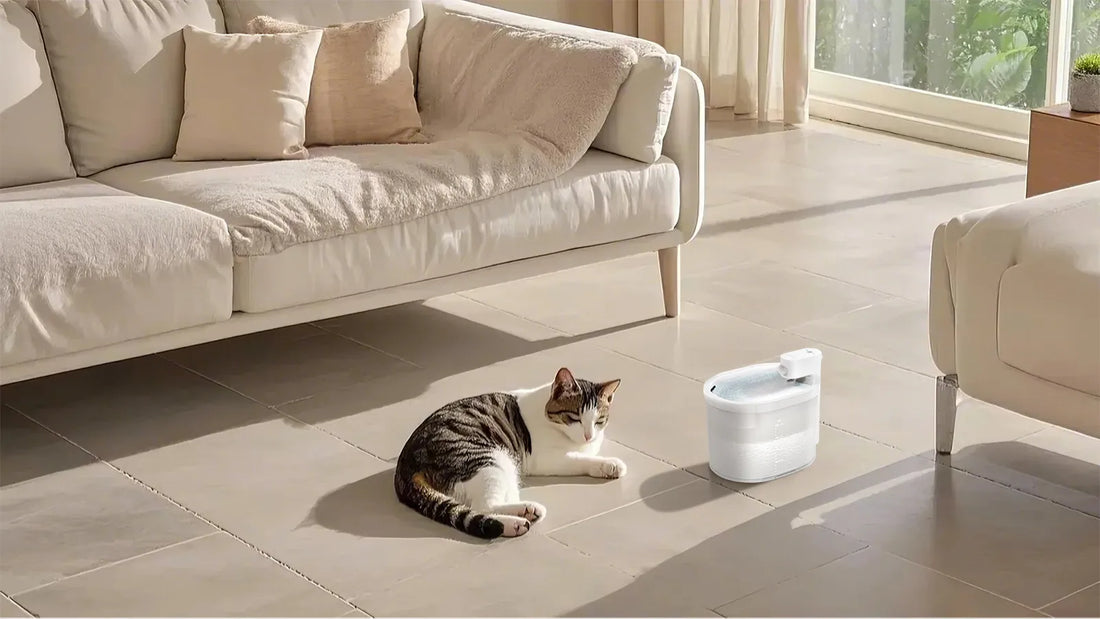If you’ve noticed your senior dog coughing after drinking water, you’re not alone. This common issue can be concerning for pet owners, but understanding the underlying causes and solutions can help you provide the best care for your furry friend. Let’s dive into the reasons behind this behavior and what you can do to ensure your dog’s health and comfort.
Why Does My Senior Dog Cough After Drinking Water?
Coughing in senior dogs after drinking water can be attributed to several factors. One of the most common causes is dysphagia, a condition that makes swallowing difficult. As dogs age, their muscles and reflexes may weaken, leading to improper swallowing and subsequent coughing. Another potential cause is laryngeal paralysis, a condition where the muscles controlling the larynx fail to function properly, causing water to enter the airway.
Common Health Conditions Linked to Coughing
Several health conditions can lead to coughing in senior dogs after drinking water. Heart disease is a significant concern, as it can cause fluid buildup in the lungs, leading to coughing. Respiratory infections or pneumonia can also trigger coughing episodes, especially if the infection affects the throat or lungs. Additionally, tracheal collapse, a condition where the trachea loses its rigidity, can cause coughing when drinking water.
How to Identify the Cause of Coughing
To determine the exact cause of your senior dog’s coughing, it’s essential to observe their behavior and consult a veterinarian. Keep track of when the coughing occurs, its frequency, and any other symptoms your dog may exhibit. A thorough physical examination, along with diagnostic tests such as X-rays or blood work, can help pinpoint the underlying issue.
Preventive Measures and Home Care
There are several steps you can take at home to reduce your senior dog’s coughing after drinking water. Ensure your dog has access to fresh, clean water at all times. Consider using a raised water bowl to make drinking more comfortable and reduce the risk of water entering the airway. Monitor your dog’s water intake and encourage them to drink slowly. If your dog has a respiratory condition, using a humidifier can help keep their airways moist and reduce coughing.
When to Seek Veterinary Care
While occasional coughing may not be a cause for concern, persistent or severe coughing warrants a visit to the veterinarian. If your senior dog exhibits other symptoms such as lethargy, loss of appetite, or difficulty breathing, seek immediate medical attention. Early diagnosis and treatment can prevent complications and improve your dog’s quality of life.
Treatment Options for Senior Dogs
Treatment for coughing in senior dogs depends on the underlying cause. For conditions like laryngeal paralysis or tracheal collapse, surgical intervention may be necessary. Medications such as cough suppressants or antibiotics can help manage symptoms and treat infections. In cases of heart disease, your veterinarian may prescribe medications to manage fluid buildup and improve heart function.
Lifestyle Adjustments for Senior Dogs
Making lifestyle adjustments can significantly improve your senior dog’s health and reduce coughing episodes. Maintain a balanced diet to support their overall well-being and avoid overfeeding, which can lead to obesity and exacerbate respiratory issues. Regular exercise is essential, but avoid strenuous activities that may strain your dog’s respiratory system. Provide a comfortable and stress-free environment to promote relaxation and reduce coughing.
Monitoring Your Dog’s Health
Regular check-ups with your veterinarian are crucial for monitoring your senior dog’s health. Routine examinations can help detect potential issues early and ensure your dog receives appropriate care. Keep an eye on any changes in your dog’s behavior, appetite, or energy levels, and report them to your veterinarian promptly.
Seeing your senior dog cough after drinking water can be distressing, but with the right knowledge and care, you can address this issue effectively. By understanding the potential causes, implementing preventive measures, and seeking veterinary care when necessary, you can ensure your dog remains healthy and happy in their golden years. Don’t wait—take action today to provide the best possible care for your beloved pet.













